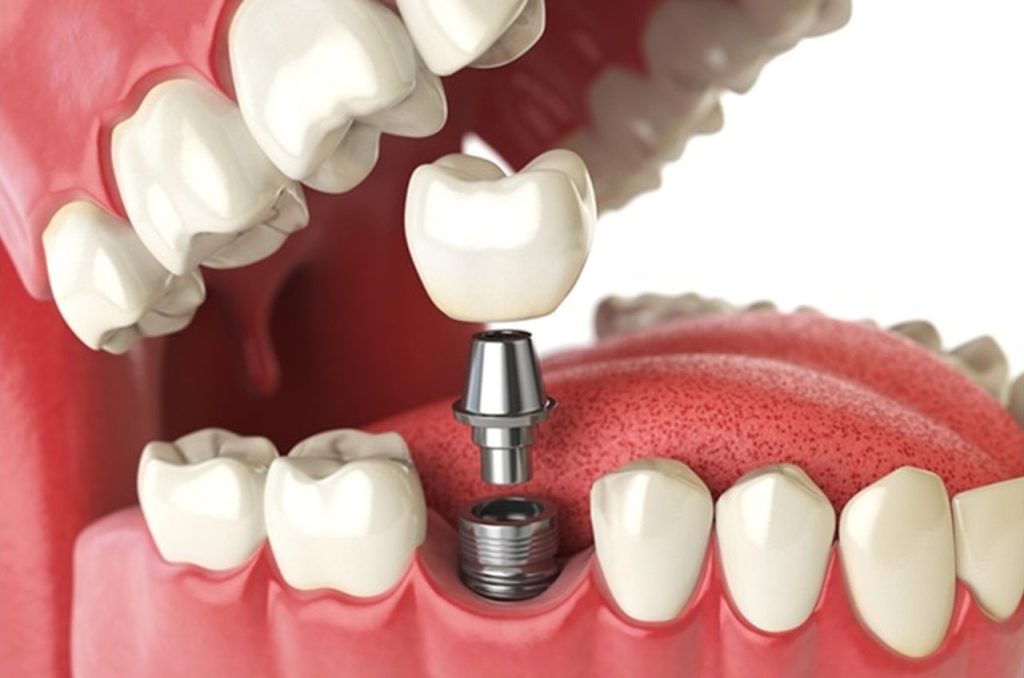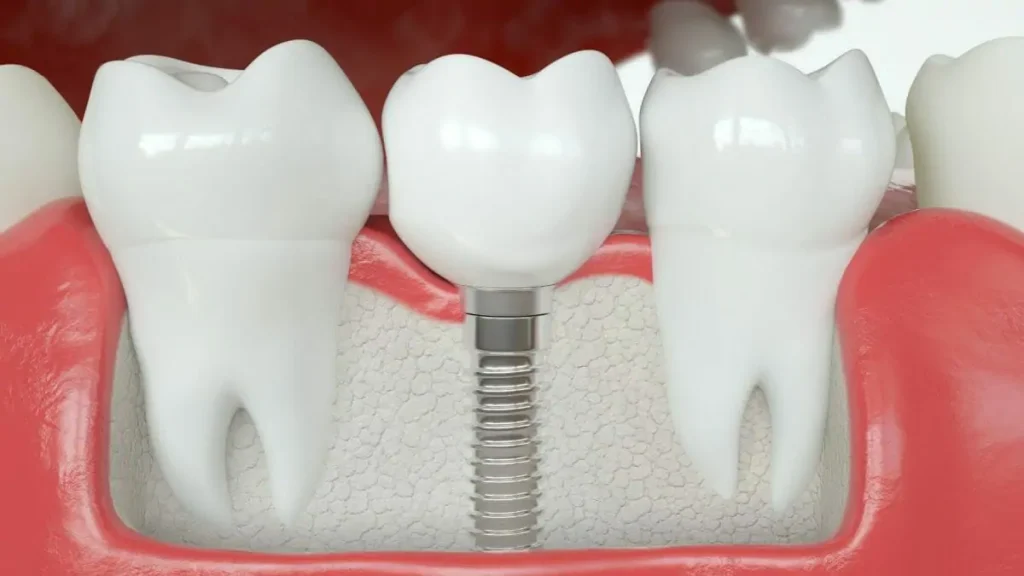WHAT IS Implant Dentistry (Fixed Artificial Tooth)?
A dental implant is basically a titanium post which is surgically inserted into the jawbone beneath the gum line to work as a tooth root. Post insertion, an implantologist will attach a crown on top of the implant to ensure the appearance of a natural tooth.
Tooth Implants not only look and feel like your natural teeth but also function like.


Dental Implants:
- Dental implants are small, titanium posts that are surgically placed into the jawbone to serve as artificial tooth roots.
- They provide a strong and stable foundation for artificial teeth, such as crowns, bridges, or dentures.
Evaluation and Planning:
- The process begins with a thorough dental examination and assessment, including X-rays and 3D imaging, to evaluate the jawbone’s health and determine the suitability for dental implants.
- A comprehensive treatment plan is developed, considering factors like the number of missing teeth, bone density, and the patient’s overall health.

The Process:
Assessment: The dental implant process typically begins with a comprehensive evaluation. The dentist assesses the patient’s oral health, bone density, and suitability for dental implants.
Implant Placement: If the patient is a suitable candidate, the dental implant(s) are surgically placed in the jawbone. The implant is allowed to integrate with the bone during a process known as osseointegration, which usually takes several months.
Abutment Placement: After osseointegration is complete, an abutment, a small connector, is attached to the implant. The abutment connects the implant to the artificial tooth.
Artificial Tooth Attachment:
- Single Crown: For a single missing tooth, a custom-made dental crown is attached to the abutment, creating a natural-looking and functioning replacement.
- Dental Bridge: In cases where multiple adjacent teeth are missing, a dental bridge supported by implants may be used. The bridge spans the gap and is anchored to the implants.
- Implant-Supported Dentures: For patients with many missing teeth, full or partial dentures that attach to dental implants provide enhanced stability and comfort.
Benefits:
Stability: Dental implants offer superior stability compared to other tooth replacement options. They are firmly anchored in the jawbone, preventing issues like shifting or slipping.
Natural Appearance: The artificial teeth attached to implants closely resemble natural teeth in terms of appearance and function.
Durability: Dental implants are a long-lasting solution, often lasting for many years or even a lifetime with proper care.
Preservation of Bone Structure: Implants stimulate the jawbone, which helps maintain bone density and prevents bone loss, a common issue with missing teeth.
Improved Oral Health: Implants do not rely on adjacent teeth for support, so neighboring teeth remain unaffected.
Considerations:
Surgical Procedure: The implant placement involves minor oral surgery, and patients may require a healing period before the artificial tooth can be attached.
Patient Suitability: Some individuals may not be suitable candidates due to insufficient bone density or certain medical conditions.
Dental implants offer a reliable and aesthetically pleasing solution for replacing missing teeth. They provide a fixed, natural-looking artificial tooth that restores both oral function and confidence in one’s smile.
